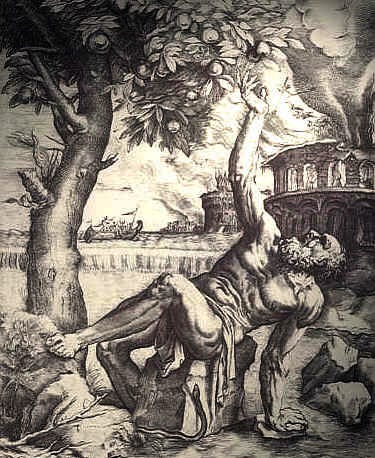Sunday, January 20, 1861
Jude had forgotten the books. He removed the package from his valise and untied the twine. The paper slipped away to reveal three slender volumes.
“‘Medwin’s translation of Aeschylus’s Oresteia,’” Jude read aloud, puzzled. The he snorted. “Plays? Ernst! Aren’t these Greek mythologies? Made up stories by pagans to explain a world they didn’t understand? What do plays have to do with justice?”
The German’s eyebrow rose. “Aeschylus was a Greek dramatist who is considered the father of tragedies,” he explained. “He wrote extensively on the House of Atreus, a royal house during the Heroic Age of Ancient Greece, when gods lived among men. The founder of the house was Tantalus, son of Zeus and a mortal mother. To test the potency of the gods, Tantalus killed his son, Pelops, and fed him to the gods at a feast. The gods punished Tantalus by sending him to the underworld where he spends eternity in a pool of water underneath a fruit tree. Whenever he reaches for the fruit, the branches retreat from his grasp. Whenever he tries to scoop a mouthful of water, the pool recedes from him. From him we have the origin of the word, tantalizing!”
Jude wondered where this was going, especially as it only confirmed his skepticism.
“The House of Atreus is cursed forever for the sins of its founder!” Ernst proclaimed. “The original sin in the Greek world!”
“People can be consumed by sin,” Jude politely commented, thinking of his father.
“Of course, Jude Royer! We seek the original sin and curse ourselves with the concept out of desperation to understand why man is capable of evil,” Ernst said, giving Jude a knowing look.
Keep reading with a 7-day free trial
Subscribe to Quest for Justice to keep reading this post and get 7 days of free access to the full post archives.



